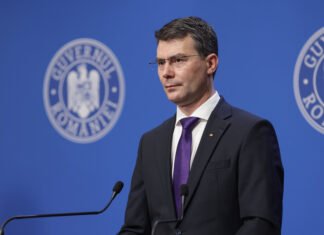FCAS Project Faces Challenges: France Demands 80% Control While Germany Threatens Funding Cuts
The Future Combat Air System (FCAS) project, a significant initiative in military aerospace collaboration involving France, Germany, and Spain, is currently experiencing substantial obstacles. Recent developments have highlighted growing tensions between the participating nations, particularly France and Germany, jeopardizing the project’s future.
France is asserting its desire for greater control over the FCAS project, proposing a stake of 80% in the program. This demand stems from the French government’s ambition to lead the project and ensure that the technological and industrial benefits primarily favor France. The rationale behind this push comes from the perception that France, with its advanced aerospace capabilities, is best suited to guide the project towards success. The French defense sector is robust, bolstered by a history of leading various military programs, and Paris sees this project as an opportunity to solidify its position in the European defense landscape.
Conversely, Germany has responded with skepticism regarding France’s increased stake. Berlin’s representatives have indicated that allowing such a significant French control could lead to an imbalance in the project’s collaborative nature. Additionally, Germany has voiced concerns about the financial implications of France’s demands. As a countermeasure, German officials have warned that if France continues to pursue an 80% control element, they may reconsider their financial contributions to the FCAS initiative.
The consequences of funding cuts from Germany could be catastrophic for the FCAS project, which is already under significant pressure to deliver innovative solutions that meet the evolving security needs of Europe. Germany’s financial commitment has been crucial in maintaining the momentum of the project, which aims to develop next-generation aircraft and related air combat technologies that would replace aging fleets across Europe.
Furthermore, the friction between France and Germany over project leadership exemplifies a deeper issue within European defense cooperation. The FCAS project was initially envisioned to be a collaborative endeavor that would pool resources and expertise from multiple countries. However, national interests are often at odds in defense projects, leading to conflicts that threaten collaborative initiatives. The situation reflects a broader challenge in creating a unified European defense strategy in an increasingly complex geopolitical landscape.
With rising tensions, stakeholders are left to ponder the future of the FCAS program. Should Germany act on its warning and withdraw funding, the viability of the project would undoubtedly be compromised. This would not only stall the technological advancements planned under FCAS but could also send ripples through the European defense community, undermining trust among partners.
As dialogues between France and Germany continue, it remains critical for both nations to negotiate a solution that honors their respective interests while ensuring the successful progression of the FCAS initiative. The potential for a mutually beneficial compromise exists, but only time will tell if leaders can set aside their differences for a common goal, forming a strong foundation for future European defense collaborations.
In conclusion, the developments in the FCAS project mirror the complexities of international defense cooperation amid rising nationalistic tendencies. The outcomes of this situation will have lasting repercussions not only for France, Germany, and Spain but for the overall stability and unity of Europe’s defense strategy moving forward.






